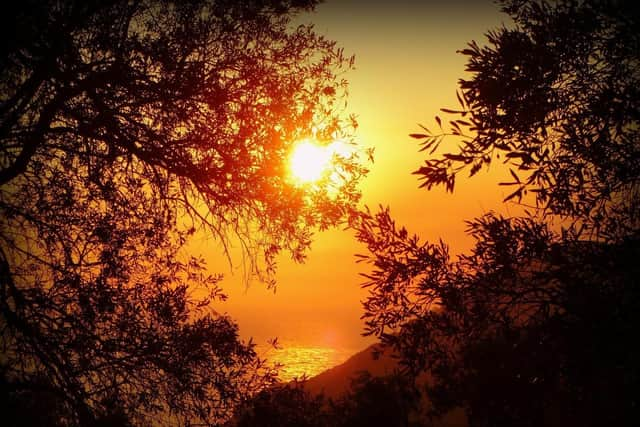Summer Solstice Newcastle 2022: what is it, when it is and how many daylight hours will there be?
and live on Freeview channel 276
Today marks the summer solstice which signals the official beginning to summer.
Summer solstice brings with it the longest hours of daylight for places across the Northern Hemisphere, including the UK.
Advertisement
Hide AdAdvertisement
Hide AdThe amount of daylight hours a place can get will vary from location to location, and depends on how close you are to the North Pole.
Areas like Northern Ireland and Scotland will experience longer daylight than the south of England or Channel Islands.


So, how many daylight hours will Newcastle get?
Here’s everything you need to know about the summer solstice.
What is the summer solstice?
Summer solstice is the longest day of the year for people living in the Northern Hemisphere of the earth.
Advertisement
Hide AdAdvertisement
Hide AdMeanwhile, it is the shortest day of the year for those living in the Southern hemisphere.
Summer solstice is also known as midsummer, and estival solstice across the globe.
However, no matter the name it goes by, the event occurs when one of Earth’s poles has its maximum tilt toward the sun.
When is the summer solstice?
The summer solstice marks the longest day of the year and falls on Tuesday 21 June.
Advertisement
Hide AdAdvertisement
Hide AdDepending on the shift of the calendar, the summer solstice occurs sometime between 20 June and 22 June in the Northern Hemisphere.
For the Southern Hemisphere the summer solstice occurs between 20 December and 23 December.
How many daylight hours will there be in Newcastle?
Newcastle will see around 17 hours of daylight. The daylight hours will be as follows:
- Newcastle, United Kingdom - sunrise: 4:27am, sunset: 9:49pm
Other areas in UK will see the following daylight hours:
- Lerwick, Scotland: sunrise 3:39 am, sunset 10:34pm
- Edinburgh, Scotland: sunrise 4:23am, sunset 10:05pm
- Belfast, Northern Ireland: sunrise 4:47am, sunset 10:03pm
- Manchester, England: sunrise 4:49am, sunset 9:41pm
- Liverpool, England: sunrise 4:43am, sunset 9:40pm
- Birmingham, England: sunrise 4:44am, sunset 9:34pm
- Stonehenge, England: sunrise 4:52am, sunset 9:27pm
- Cardiff, Wales: sunrise 4:55am, sunset 9:33pm
- London, England: sunrise 4:43am, sunset 9:21pm
- Southampton, England: sunrise 4:51am, sunset 9:23pm
- Falmouth, England: sunrise 5:10am, sunset 9:34pm
- Jersey, Channel Islands: sunrise 5:03am, sunset 9:17pm
How is the Solstice commemorated?
For the majority of people and cultures across the world the celebrations of the summer solstice involve enjoying the sunshine, being out in nature, sumptuous feasts, bonfires, singing and dancing to traditional songs.
Advertisement
Hide AdAdvertisement
Hide AdPeople throughout the world will travel to iconic destinations to catch the sunrise or sunset of the summer solstice.
Some of the most popular spots in the UK to celebrate the summer solstice include Stonehenge, Glastonbury Tor, Ben Nevis, Bryn Celli Ddu, Gwynedd and the Giant’s Ring.
What place will have the most daylight?
Places in the Northern Hemisphere will see the most hours of daylight. Alaska can expect to see up to 19 hours of sunlight.
Countries like Iceland will experience up to 21 hours of sunshine this year, making it the place with the longest day in the world.
Countries like Tokyo will enjoy up to 14 hours of daylight.
Places across the UK could see up to 16 hours of daylight.
Scotland’s very own Shetland Islands will see the most daylight hours this summer solstice, with a forecast of 19 hours of daylight.
Comment Guidelines
National World encourages reader discussion on our stories. User feedback, insights and back-and-forth exchanges add a rich layer of context to reporting. Please review our Community Guidelines before commenting.
